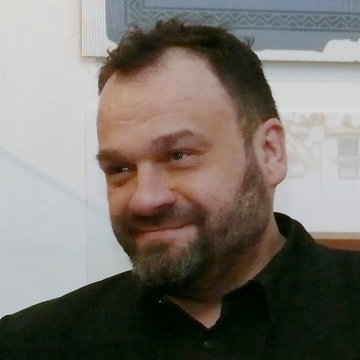CV
Zoltán Mizsei graduated from the Franz Liszt Academy of Music as a professor of choral conducting and Church music. He received his DLA in 2004, the title of the dissertation is Costanzo Porta-Vespers music. Currently, he is associate professor at the Franz Liszt Academy of Music, at the department of Church music. He teaches Renaissance church music, menzural notation, choral conducting and voice teaching practices. Since 2014 he has been the conductor of Schola Academica and the founding member of the vocal ensemble Voces Aequales. He sings and plays instruments in several early music and world music ensembles. He is also a solo singer and composes music for contemporary dance performances and films. He teaches improvisation for music therapists at ELTE University.
Research program
Kőszeg – – “Sounding City” The revitalization of the once rich musical life of Kőszeg and its region requires us to develop new ideas of music- and sound-making. One of the objectives is to establish a Music Laboratory which deals with the music of the city itself, the region in Hungary and the cross-border region. I aim to establish an interdisciplinary research agenda, which brings together musicology with non-material heritage management, sound art with data artists and data technologists. The other goal is to show the region’s musical heritage and give new forms of musical activities for its citizens and visitors. I plan on collaborating with local musicians as well as collecting music and sound patterns across the region. The goal is to map out these particularities and make the city into a ’soundspace’ where different traditional and innovative sounds can be heard. The involvement of locals would be a continuous process and it is planned to be introduced in the everyday life of residents through concerts, festivals, workshops and educational programs.
iASK-question
Can you hear how the city sounds?
